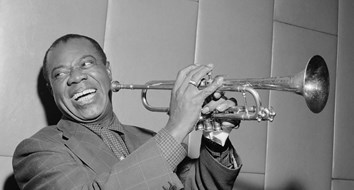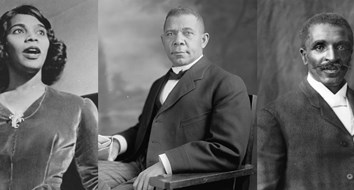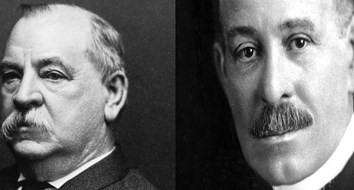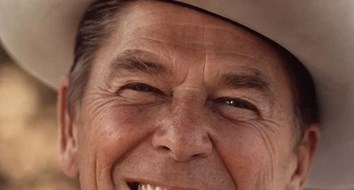Download:
Conventional wisdom holds that fighting poverty has only lately been a concern of American presidents, and that before Franklin Roosevelt it was hardly a concern at all. This stubborn error persists.
An unrepentant welfare statist would probably survey the men who held the highest office in the land during the nineteenth century and dismiss them as heartless and uncaring. Even during the severe depressions of the 1830s and the 1890s, Presidents Martin Van Buren and Grover Cleveland never proposed that Washington extend its reach to the broad-based relief of private distress, and they opposed even the smallest suggestions in that direction.
Welfare statists make a crucial error, however, when they imply that it was left to presidents of a more enlightened twentieth century to finally care enough to help the poor. The fact is, presidents of the 1800s did mount a war on poverty—the most comprehensive and effective ever mounted by any central government in world history. It just didn’t have a gimmicky name like “the Great Society.” Those early chief executives might well have said their antipoverty program was, in a word, liberty. It meant self-reliance, work, and entrepreneurship; civil society; a strong and free economy; and government confined to its constitutional role as protector of that liberty.
And what a poverty program liberty proved to be! Even with a horrendous civil war and half a dozen economic downturns, America progressed from near universal poverty at the start of the century to within reach of the world’s highest per capita income by the end. Poverty didn’t disappear by 1900, but what was left of it stood out like a sore thumb because it was rapidly becoming the exception.
Consider Thomas Jefferson. In his First Inaugural Address in 1801 he concisely described “a wise and frugal government, which shall restrain men from injuring one another, shall leave them otherwise free to regulate their own pursuits of industry and improvement, and shall not take from the mouth of labor the bread it has earned. This is the sum of good government.”
James Madison, a key figure in the construction of the Constitution, agreed. He vetoed bills for so-called “internal improvements” at federal expense, and in a speech in the House of Representatives before he became president, Madison declared, “Charity is no part of the legislative duty of the government.”
Our Founders knew that a government that has no strict boundaries, that robs Peter to pay Paul, that confuses rights with wants will yield financial ruin at best and political tyranny at worst. Jefferson, Madison, and almost all of the succeeding 20 presidents of the nineteenth century were constrained by this view of the federal government, and most of them were happy to comply with it. They knew that if liberty were not preserved, poverty would be the least of our troubles.
Andrew Jackson, our seventh president, reminded Congress frequently in Jeffersonian terms what the federal role was. In his Fourth Annual Message on December 4, 1832, he wrote: “Limited to a general superintending power to maintain peace at home and abroad, and to prescribe laws on a few subjects of general interest not calculated to restrict human liberty, but to enforce human rights, this government will find its strength and its glory in the faithful discharge of these plain and simple duties.”
Meanwhile, the poor of virtually every other nation on the planet were poor because of what governments were doing to them, often in the name of doing something for them—taxing and regulating them into penury; seizing their property and businesses; squandering their resources on official luxury, mindless warfare, and wasteful boondoggles; foisting state monopolies on them; persecuting them for their faith; and torturing and killing them because they held views different from those of the powers that be. What America was all about was government not doing such things to people—and that one fact, all by itself, would have been a powerfully effective antipoverty program.
Americans of all colors pulled themselves out of poverty in the nineteenth century with a generous measure of wealth creation through invention and enterprise. And as they created new wealth, they generously gave much of it, along with their time and attention, to their neighbors and communities. When the French social commentator Alexis de Tocqueville visited a young, bustling America as Jackson presided in the White House in the 1830s, he cited the vibrancy of this “civil society” as one of this country’s greatest assets.
Indeed, civil society in the nineteenth century produced the most remarkable flowering of private charitable assistance ever seen. It was the era that saw the founding and flourishing of many of our most notable and lasting private associations—from the Salvation Army (established in America in 1880) to the American Red Cross (founded by Clara Barton in 1881).
Grover Cleveland
All of which leads me to a few words about a president who happens to be among my personal favorites, Grover Cleveland—our 22nd and 24th president, the only one to serve two terms that were not consecutive, the humble son of a Presbyterian minister.
In The American Leadership Tradition: Moral Vision from Washington to Clinton, Marvin Olasky noted that as mayor of Buffalo, New York, in the early 1880s,“Cleveland’s willingness to resist demands for government handouts made his name known throughout New York State,” catapulting him to the governorship in 1882 and then the presidency in 1884. In vetoing a bill in 1887 that would have appropriated a mere $10,000 in aid for drought-stricken Texas farmers, Cleveland wrote, “I can find no warrant for such an appropriation in the Constitution; and I do not believe that the power and duty of the General Government ought to be extended to the relief of individual suffering which is in no manner properly related to the public service or benefit. . . . [T]hough the people support the Government, the Government should not support the people” (emphasis mine).
Cleveland went on to point out that “the friendliness and charity of our fellow countrymen can always be relied on to relieve their fellow citizens in misfortune.” Americans went on to prove him right. Those Texas farmers eventually received more than ten times in private aid what the bill the president vetoed would have provided.
In March an international commission on Africa called on wealthy countries like the United States to double their government “aid” to Africa. Many of the governments of Europe are in full support. As I prepared this lecture I asked myself, “What would American presidents of the nineteenth century have to say about that?” I can imagine Cleveland, Van Buren, Jackson, Madison, or Jefferson reacting in disbelief at the very suggestion. Grover might say, “Aid to Africans? We don’t even do aid to Americans.” And he would have a century of unprecedented progress against poverty to point to as his example.





